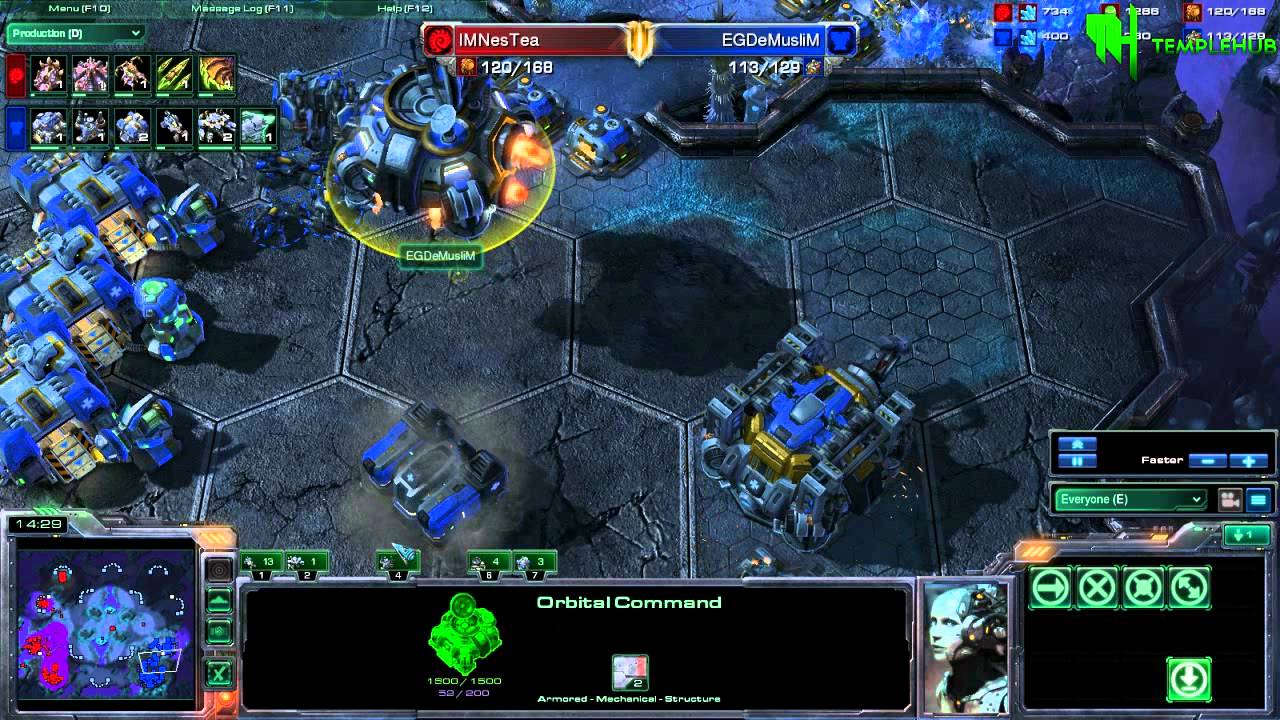From our WIKI section.
Did you know that ……. ???
Starcraft Heroes – Graven Hill
Graven Hill’s battle scars and long list of black market contacts belied a little of his good upbringing on Umoja. As a youth he was supposed to be a politician, like his father and mother, but Graven always found politics unfulfilling and useless.
Planets Starcraft – Umoja
Of the four Terran supercarriers that carried many thousands of Terrans to the Koprulu sector, two had to make an emergency landing on the strange and wild planet of Umoja. One ship, the Sarengo, suffered critical system failures and was destroyed on impact.
Starcraft Units – Drohne
The Drone is the Zerg Worker. It can gather Minerals and Vespene Gas and has a low-damage ranged attack (range of one.) It can morph into a Zerg building anywhere on any Creep generated from Creep Colonies and Hatcheries, even when the creep is sustained by neutral or enemy buildings.
Starcraft Missions – Inside the Enemy’s Body
There’s only one thing you need to be aware of in this mission: as soon as one of your units dies, you need to replace them immediately. With this you can easily complete this mission. If you diligently infect the neutral units with your queen during the fights in order to preserve their biomass, you shouldn’t have any problems with this success either.
Starcraft Buildings – Cybernetics Core
The Cybernetics Core (sometimes referred to as Cyber Core or just Core) is a structure on the Protoss Technology Tree, which requires a Gateway before it can be warped in. The Cybernetics Core unlocks new units and the Shield Battery building, and enables research of several upgrades.
Follow us and check out our social media accounts on Twitter, Facebook & YouTube ►
● on Twitter ► esport.directory
● Facebook ► esport.directory
● Youtube ► esport.directory
Starcraft
Starcraft is a turn-based game. The active player receives the obligatory first player token, so it should always be clear whose turn is being played, and especially interesting: StarCraft does not require any dice at all.
To get started, you first have to agree on your faction, then gather all the necessary figures, cards and tokens of your faction (woe betide the game master who only starts sorting now!) and leave the table in the middle free, as this is where the galaxy, i.e. the playing field, is built.
This proceeds similarly to Twilight Imperium.
Each player draws two planet tokens, which they can use to pick their planets from the planet stack. This step is necessary because the planet cards are shaped differently and the tokens are the only way to ensure that the drawing is random.
The starting player then places his first planet in the center of the table and can already build a base – but he doesn’t have to, then he has to do it on his second planet as soon as he lays it out.
Once the first planet is in place, it is the next player’s turn to lay out his first planet and connect it to the previous player’s planet with a navigation route cardboard piece. The last player may lay out both planets at the same time and then it goes in reverse order to the starting player. This way a more or less interconnected galaxy is created.
Finally, Z-axes are laid, which are navigation routes across loose ends, sort of a 3D conversion.
Each player receives the corresponding resource cards for his two planets and then only the event cards are reduced according to the number of players, shuffled and placed on the board. There are three event card phases, which is symbolized by different card backs and should help the game to become faster and more powerful towards the end. Now the game can start.
Each round is divided into three phases.
Starcraft is a turn-based game. The active player gets the obligatory first player token, so it should always be clear whose turn is being played, and most interestingly, StarCraft doesn’t require any dice at all.
To get started, you first have to agree on your faction, then gather all the necessary figures, cards and tokens of your faction (woe betide the game master who only starts sorting now!) and leave the table in the middle free, as this is where the galaxy, i.e. the playing field, is built.
This proceeds similarly to Twilight Imperium.
Each player draws two planet tokens, which they can use to pick their planets from the planet stack. This step is necessary because the planet cards are shaped differently and the tokens are the only way to ensure that the drawing is random.
The starting player then places his first planet in the center of the table and can already build a base – but he doesn’t have to, then he has to do it on his second planet as soon as he lays it out.
Once the first planet is in place, it is the next player’s turn to lay out his first planet and connect it to the previous player’s planet with a navigation route cardboard piece. The last player may lay out both planets at the same time and then it goes in reverse order to the starting player. This way a more or less interconnected galaxy is created.
Finally, Z-axes are laid, which are navigation routes across loose ends, sort of a 3D conversion.
Starcraft Gameplay, Starcraft Rankings, Starcraft Release Date, Starcraft Carrier, ‚ Starcraft Cover, Starcraft Skins, Starcraft Videos, Starcraft Video YouTube, Starcraft PS4, Starcraft Platforms, Starcraft Players, Starcraft Team,







